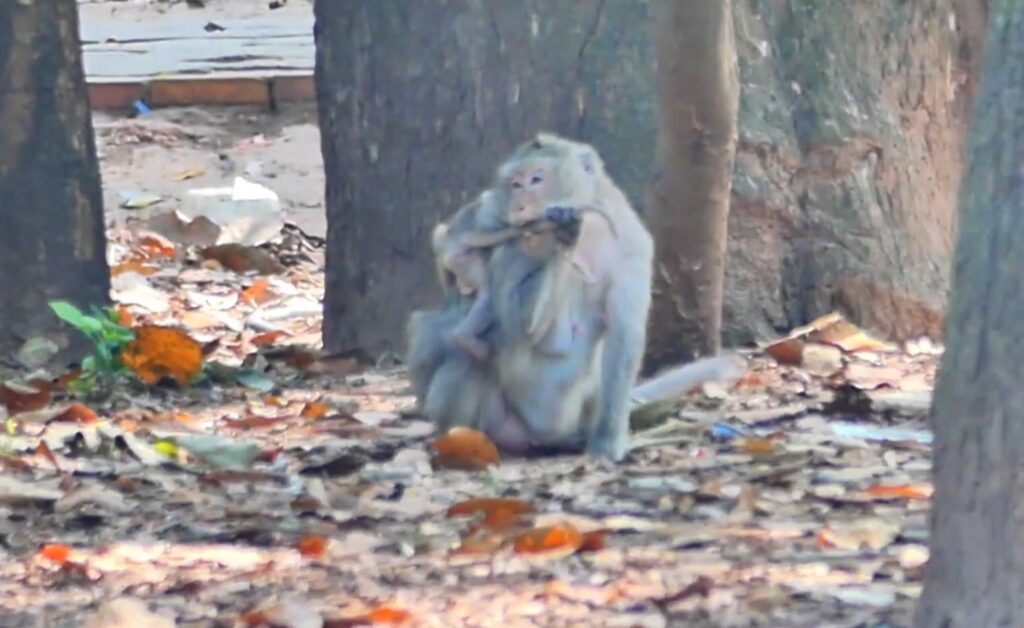A recent observation of a mother monkey refusing to nurse her infant has sparked curiosity and debate among primatologists and animal behaviorists. This seemingly harsh behavior raises significant questions about maternal instincts, social structures, and survival strategies in the wild. While humans often associate motherhood with nurturing and care, the animal kingdom operates under different rules, where survival and evolutionary pressures shape maternal behavior in unexpected ways.
Why Would a Mother Monkey Refuse to Nurse?
The denial of milk by a mother monkey can occur for several reasons, ranging from health issues to social dynamics within the troop. One of the primary factors influencing this behavior is the mother’s physical condition. If a mother is malnourished or sick, she may not produce enough milk to sustain her infant, leading to a natural rejection. In such cases, the mother’s survival instincts take precedence, as she must conserve energy to maintain her own health.
Another possible explanation is that the infant itself may be weak or ill. In the wild, primates often prioritize the survival of the fittest offspring. If a baby monkey is unlikely to thrive due to health issues or congenital defects, a mother may instinctively withhold milk to avoid expending resources on an infant that has a lower chance of survival. This seemingly cruel decision aligns with natural selection, ensuring that only the strongest genes are passed down to future generations.
Social Hierarchies and Maternal Behavior
Primates live in complex social structures, and a mother monkey’s decision to deny milk may also be influenced by her rank within the troop. Dominant females often have better access to food and resources, while lower-ranking mothers may struggle to meet their offspring’s needs. In some cases, a lower-ranking female may face aggression from dominant individuals, leading to stress and inadequate lactation.
Additionally, social competition within a troop can lead to instances of infanticide or neglect. If a mother perceives that raising an infant would compromise her position in the group or if the baby was conceived under unfavorable social conditions (such as forced mating or loss of a previous mate), she may choose to reject it. Some primatologists believe that this behavior is an adaptive strategy that allows the mother to focus on future reproductive opportunities.
Learning and Experience in Maternal Care
First-time mothers in primate species sometimes struggle with maternal instincts, resulting in accidental neglect or intentional rejection of their newborns. Just like in humans, mothering is a learned behavior among primates. Some young female monkeys lack the necessary experience to properly nurse and care for an infant, leading to unintentional abandonment. This can be observed in various primate species, including macaques and langurs, where maternal skills improve with age and exposure to other mothers within the troop.
In contrast, experienced mothers are more likely to display nurturing behaviors and successfully rear their offspring. Observations in both wild and captive primates have shown that maternal behavior can be influenced by social learning, with younger females learning from older, more experienced mothers in the group.
Implications for Conservation and Captive Care
Understanding the reasons behind maternal rejection in monkeys has important implications for conservation efforts and captive animal management. In zoos and rehabilitation centers, rejected infants are sometimes hand-raised by human caretakers or introduced to surrogate monkey mothers. However, this intervention can affect the infant’s ability to integrate into a troop later in life, highlighting the delicate balance between survival assistance and natural development.

In the wild, researchers monitor maternal behavior to gain insights into population health, environmental pressures, and genetic diversity. If maternal rejection becomes more common in a particular primate group, it could indicate ecological stress, food shortages, or disruptions in social structures due to habitat loss or human interference.
Conclusion
The sight of a mother monkey denying her baby milk may seem distressing, but it is a behavior rooted in the complex interplay of survival, genetics, and social structures. While some cases are due to poor health or lack of experience, others reflect the harsh realities of natural selection. Further research into primate maternal behavior can offer deeper insights into the evolutionary mechanisms that shape parenting strategies in the animal kingdom. Understanding these behaviors not only enriches our knowledge of wildlife but also informs conservation efforts aimed at protecting primate populations in their natural habitats.